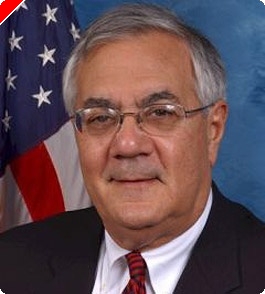Politics and Poker: Online Again in 2010?

Remember ABC��s ��Schoolhouse Rock�� and its musical segment, ��I��m Just a Bill,�� showing how a bill becomes law? It was three minutes of Disney genius and it was how most kids in the late ��70s and early ��80s learned about Congress and the process of legislation. It was pretty accurate except, perhaps, the lobbyist briefly shown 2:45 second into the clip walking out of Congress with the passed bill; he should have had a much larger and more prominent starring role!
The Unlawful Internet and Gambling Enforcement Act (UIGEA) was a chillingly deceitful bill. Its passage displayed the type of brazen legislative beauty only a Committee lawyer could love. Its simplicity was a thing of beauty. Insert an amendment into a port security bill that would back Democrats into a national defense corner just before an election, where a vote against the bill could be used against the Dems in the next round of elections.
Sixth century warrior Sun Tzu, who wrote the classic treatise ��The Art of War��, would have been proud. Attack your surging opponent at their weakest point (national defense) before a Congressional election in which your own party is faring badly. This is classic warfare and there was no way, with control of the Congress so close, the Democrats could risk voting against it. And they didn��t.
It��s the Washington way.
Another way of Washington: If you don��t like something, don��t attack it directly and allow your opponent to organize a defense against your frontal attack. An act of Congress making Internet gaming illegal would never fly with global markets. Instead, online gambling��s opponents attacked the payment systems everyone use. Outright bans invite World Trade Organization sanctions and lawsuits. Lawmakers could rightly say, ��We did not ban Internet gaming.��
It passed at midnight on the Friday evening Congress fled town for its big October ��get out of town and home to campaign�� recess. Opponents of Internet gaming �� these were the powerful land-based and Indian gaming casino lobbies, ironically spearheaded by serial gambler and future Presidential candidate John McCain and current jailbird lobbyist Jack Abramoff �� surreptitiously snuck the language into the port security bill. They then went over to the bar for cognac and cigar to celebrate another deft move for their clients.
UIGEA opponents followed party lines (the Republicans were in the majority) and a few conservative Democrats fearing a social and real backlash if they voted down a critical national security measure gritted their teeth and also voted for it. The Federal Reserve was then ordered by the outgoing Bush Administration to issue final UIGEA rules before the transition. The online gaming community and banks fumed and the Bush White House knew there was nothing that would be done about it with two wars, a credit meltdown, mortgage foreclosure crisis, rendition and torture debate and the auto industry tanking. They rightly wagered this would all fly under most radar screens.
So un-ringing this legislative bell requires similarly beautiful craftwork. Barney Frank and Ron Paul wrote and sponsored a quick and clumsy unfinished symphony of a bill during the 2008 election year. They knew it was doomed at the start, yet they could say, ��Hey, we tried. It��s all Team Bush��s fault.�� They did, though, lay the debate framework which allowed them to move forward with the latest bill.
Direct action is fraught with danger because one must exercise courage. The popular ��80s British television sitcom ��Yes, Minister,�� featured a change-averse and politically-greasy advisor to a bumbling Cabinet Minister. Sir Humphrey Appleby always described those actions not to be taken under any circumstance as ��courageous��. It was a code that meant certain defeat of the Minister at the polls. In like manner, Frank and Paul��s ��courageous�� bill never made it out of committee.
But in 2009, with a new mandate and Democratic control of both houses, Barney Frank went back to the drawing board and recently issued two bills to tackle the UIGEA issue. The first, the Internet Gambling Regulation Consumer Protection & Enforcement Act (IGRCPEA �C we certainly need a better acronym!), would establish a federal regulatory and enforcement framework for online gaming.
Committee Chairman Frank wants the already overworked and very powerful U.S. Treasury Department, heavily involved with the TARP and auto bailouts, to have the authority to regulate, tax and license Internet gaming operators. Under this bill, the Feds would also have the ability to revoke or terminate licenses of operators who violate the law. The bill provides for fines and other enforcement actions. Basically it brings online gaming back but with a regulatory framework to generate tax revenues. The bill also allows states to set up similar authorities for collecting state taxes from gaming.
The second bill is the ��courageous�� one. Here, Congressman Frank wants a freeze and suspension put immediately on the implementation of the UIGEA rules implemented by the Bush administration, because they would have to be changed again when this bill passes.. and also to fire a shot across the bow of ranking Republican member Spencer Bachus, from Alabama��s 6th District. Congressman Bachus has emerged as a leading foe of online gambling in any form, becoming notorious for fighting it at every turn. This Bible Belt Baptist has sponsored legislation against or voted against every major bill concerning online gaming.
Bachus has already lined up support to defeat Frank��s ��courageous�� bill and, as always, the key will be whether Frank can keep the ��Blue Dog�� conservative Democrats in line. Ben Nelson of Nebraska and Evan Bayh of Indiana have already brought the Democratic Congress��s banking-friendly team against mortgage foreclosure relief to a standstill, by towing the line with their lobbyist/campaign supporters. Will they do the same here to appease or horse trade with the Republicans? All is possible and it��s difficult to see where or when this will end.
Individual states are more likely to take definitive action before this bill makes its way through Congress, now that they see a framework and have gaping budget holes. California, which could declare bankruptcy in July, is just one example of a state where online poker is in play.
So keep the champagne on ice; we��re talking November before this gets to passage. Then the rules process begins and that can take another year on top. So ��Online Again in 2010,�� seems a workable rallying cry �C just as ��Not sure when in 2010�� is the subtext headline.
I��m headed to Capitol Hill next week from the UK to meet with Congress members, Committee staff and lobbyists first hand and will report back from the front lines.
Editor's note: Contributing columnist Denis Campbell brings an independent and experienced eye to poker's political scene. Campbell has worked closely in the past with former Cabinet Secretaries in the Carter and Clinton administrations, Ambassadors and members of Congress. He offers commentary on US and UK politics for the BBC and Huffington Post, and is currently the editor-in-chief of UK Progressive Magazine. Here, Denis offers his insights on matters affecting poker. Denis' views do not necessarily reflect those of PokerNews.








